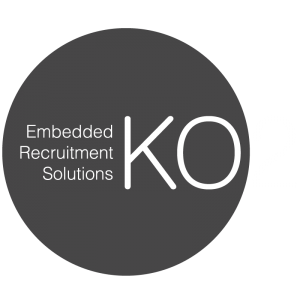There is a wide range of different job titles and positions that are used in the embedded systems and electronics industry, from software architect to product lead, team leader and engineering manager. What makes these terms even more confusing is that many businesses use them interchangeably, making it difficult to determine what each role requires and when it is needed in a company.
Knowing the difference between a technical lead vs a project manager can be tricky, especially as a technical lead is often called other names as well and can sometimes be confused by a team lead, which is a different position altogether. There are clear differences between the two roles however, with each having its own responsibilities and requirements.
In this article, we explore the differences and similarities of a lead engineer vs project manager.
What is a Technical Lead?

A technical lead or technical project lead is the job title given to the individual who is responsible for guiding the technical development of a product and overseeing a team of technical developers and designers. It’s a role that senior software engineers or developers are often given as part of a larger project and involves liaising with the project manager and other individuals who may be in charge of similar teams.
As well as having the necessary technical skills and knowledge to plan and direct the development of a project, a technical lead’s technical lead role and responsibilities will also require them to have good interpersonal skills and a knack for leadership. They will be in charge of instructing all members of their team and solving any issues that arise within this group, as well as advising on the whole project’s development and reporting any issues or ideas to the project manager.
Often, a technical lead will be in charge of managing the technical development side of a project and may work alongside their team to write and contribute to code, create prototypes, fix bugs and run tests. They will also be responsible for maintaining a positive working atmosphere, ensuring that all team members are working efficiently and guiding more junior members in the team who might not have as much experience or technical know-how.
What Does a Technical Lead Do?
Understanding what is a technical lead is only complete when you also understand what the role involves. The specifications of a technical lead role will vary depending on the project and the company you work for, but there are many general tasks that most technical leads tend to be responsible for.
- Identifying technical user requirements for the project and finding solutions
- Sourcing technical staff and delivering training if necessary
- Organising their team by delegating tasks and implementing a project timeline
- Working with members of the team to complete technical tasks
- Supervising work and solving technical issues
- Mapping progress goals and ensuring they are met
- Auditing and updating components and software
What is a Project Manager?

Whilst many technical leads have other job titles or requirements as well as their leadership responsibilities, a project manager or project team leader is solely responsible for managing projects within a company and does not have any other roles.
Project managers are in charge of seeing a project through from initial conception to completion and it is their responsibility to ensure that it is successful. The role involves planning, organising, delegating, monitoring and finalising all the different aspects of a project and overseeing the work of every team or individual involved. It may also require liaison with clients or senior management to confirm requirements and give regular progress updates.
In the electronics and embedded systems industry, a project manager doesn’t usually have the same level of technical knowledge or experience as the team members and technical leads working beneath them. Instead, their key skills lie in management, motivation, communication and organisation which are all needed to take charge of a large team and spearhead all kinds of projects.
What Does a Project Manager Do?
There are project managers in every industry, and different businesses will have different project specifications and steps that need to be followed to see a project through from start to finish. It is the responsibility of a project manager to identify what is necessary for a project based on their industry knowledge and experiences, but the following tasks give a general outline of what might be involved in the position.
- Planning all stages of the project and identifying when, how and who is going to complete each of these
- Deciding what methodology and model is going to be followed to develop the project (eg: what model of the software development life cycle will be used)
- Risk assessing the whole project and individual stages and then managing these risks
- Identifying and setting standards for the project and monitoring the work done to ensure these standards are met
- Speaking to everyone involved in the project and ensuring that they are happy, motivated and know what is required of them
- Bringing together the work completed by different teams and ensuring that this cohesion goes smoothly
- Keeping the project on schedule and managing the time and resources that are spent on it
- Solving any problems that arise and ensuring that any necessary changes are reported and resolved
- Monitoring the project at all times to ensure that it will achieve its desired outcomes and that a product or system is completed that meets client or customer requirements
What’s the Difference?
In short, a technical lead is in charge of supporting and guiding a team of technical employees. A project manager is in charge of ensuring that a project is completed successfully.
When you’re a project manager, all the decisions that you make will be influenced by the need to grow the business you work for and deliver a successful product or service that maintains a positive reputation. As a technical lead, your main concern is delivering effective pieces of software or components and ensuring that the aspects of a project that you are responsible for are completed.
In the electronics and embedded systems and software industry, both a technical project leader job description and a general project manager job description will require candidates to have studied some kind of engineering or technical design degree and likely had jobs in areas based on this qualification in the past. Whilst both individuals will have a good level of technical knowledge, a technical lead is much more experienced and knowledgeable in their chosen area, whereas a project manager is more likely to have a good overview of different systems, approaches and solutions.
Technical leads will also be required to be much more hands-on than a project manager as part of their role and will work alongside the team they are leading to develop a product or system. Project managers can offer advice or guide other employees, but practical work is not usually required of them during a project.
When it comes to useful or relevant skills, both a project manager and an IT project lead need to have solid leadership skills and be comfortable with taking responsibility and managing others. However, a project manager does this on a much larger scale and is usually a more senior member of a company with years of experience, whereas a technical lead role might just be the first stepping stone on an engineer’s journey to project management.
Ultimately, the differentiation between the two comes down to the question ‘what is the difference between leading and managing a project?’. If you are leading in any capacity then you are in charge of guiding a team and getting involved in the work required, but the task you are doing has likely been decided by someone else and you will be required to liaise with a more senior professional before being allowed to make any changes. If you are managing a project, you decide what is going to be involved, who completes each task and what resources they use, how you are going to meet requirements and how you will solve any problems that arise.

When Do You Need a Technical Lead?
In the engineering, electronic and embedded software and systems industries, a technical lead is required for projects that are going to need software, code or components created.
For a small scale project, a single or a few specialised engineers might be all that you need, particularly if they are all comfortable with the tasks required of them. However, if you have a team with several junior members or are embarking on a large project that involves multiple departments, it can be beneficial to appoint technical project leads so that there are designated employees who can manage others and report to more senior members of a company.
A technical lead may also be required if your business has just taken on a cohort of new employees who have been assigned a project or part of a project as one of their first tasks. Appointing a technical lead who is more experienced and potentially is qualified to deliver training can be incredibly useful in these instances where guidance and monitoring are needed.
Where Can You Find Technical Leads?
In the majority of cases, a technical lead role is a temporary position that is given to an existing member of staff for the duration of a project. You can choose a technical lead for a new project based on the staff you already have at your company and the experience that each member has, deciding who will be best equipped to lead others.
Some employers may decide that a project needs specialist technical advice and guidance however, and bring in a new technical project lead from outside of the company either as a permanent member of staff or on a contract basis. You can find suitable candidates for this position either by advertising the role through your company’s HR department, contacting freelancers in the industry or using a specialist recruitment agency to find exactly what you are looking for.
When Do You Need a Project Manager?
A project manager is required for all kinds of projects within the engineering, electronic and embedded software and systems industry. Unlike a technical lead, this is usually a role that someone takes on as an entire job and has specific training or qualifications for, as opposed to temporarily taking on more responsibility.
No matter the scale of the task, a project manager is needed to organise what is needed to complete the development of a new service or product and ensure that every necessary step is carried out. Whether it’s an internal task or a project that is being completed for a client, having a project manager ensures that someone has taken charge of the whole process and has the authority to do what is required to ensure success.
Where Can You Find Project Managers?
In many cases, a project manager will be hired for a company as a permanent member of staff who takes charge every time a new project comes your way. If you are a large business that deals with multiple clients and projects at one time, you may employ multiple project managers to deal with all of this business.
Project managers are experienced individuals who have worked their way up the ranks in various companies and have the required experience and industry knowledge to take charge of multiple teams and departments. They can be found by advertising for the role, reaching out to experienced individuals in the industry, or using a recruitment agency that can handpick candidates from their talent pool.
Summary
Whether you’re deciding between hiring a technical lead or project manager, or have been offered a role and want to be sure what it involves, knowing the difference between these two job titles is very important in the engineering and systems development industry. Each plays an essential part in the product development cycle and the majority of companies will require both as part of their workforce, but the skills and talents needed for each do differ quite a bit and are better suited to different individuals. Therefore, understanding the differences between a project manager vs tech lead will ensure you make the right choice of candidate.
If you’re an employer in the tech and embedded systems industry that is looking for specialist help with hiring technical leads or project managers, get in touch and find out more about what we can do.









